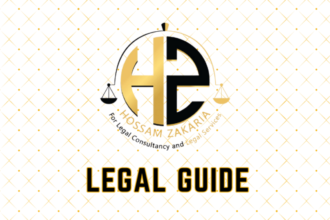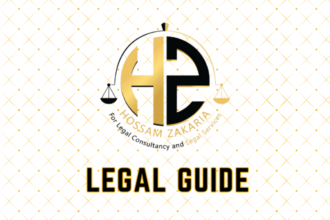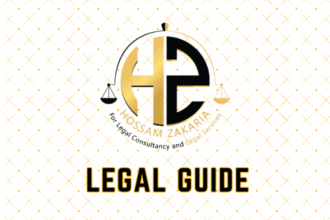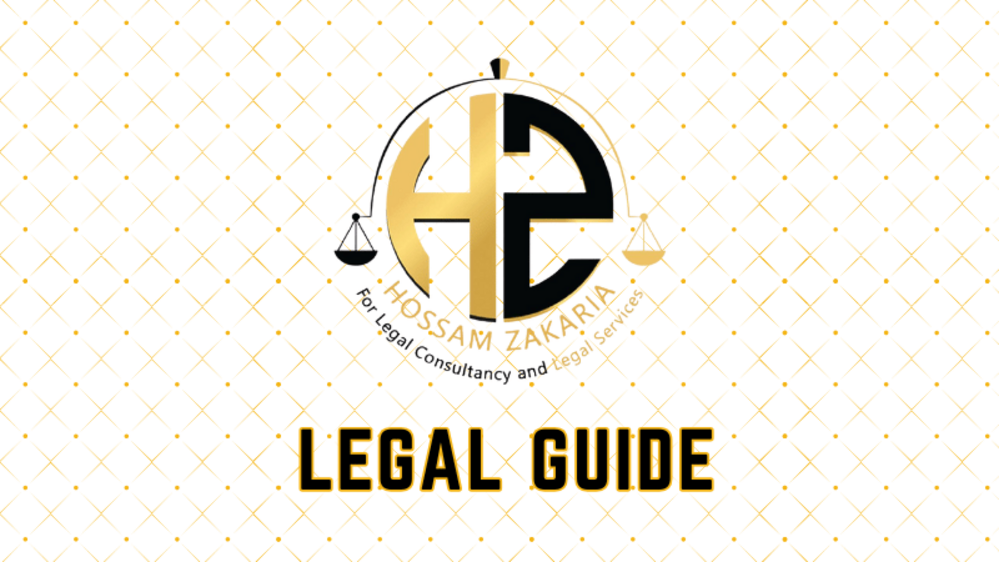Introduction
Global commerce and banking are more interconnected than ever, especially throughout the Gulf region. As the Kingdom of Saudi Arabia (KSA) continues to evolve as a major financial center, issues concerning legal jurisdiction for cross-border banking disputes have grown increasingly complex. For UAE businesses, financial institutions, and legal practitioners, the ability to navigate these jurisdictional waters is essential, particularly in light of changing regulations, enhanced enforcement mechanisms, and the broader GCC economic integration.
This article provides a comprehensive consultancy-level analysis of legal jurisdiction in Saudi cross-border banking disputes. It explains the interplay between UAE and Saudi law, recent regulatory updates, and their implications for clients engaged in regional or international banking transactions. Through detailed comparisons, practical insights, hypothetical case studies, and clear compliance strategies, readers will find actionable guidance relevant to the realities of today’s banking environment.
The significance of these issues is amplified by the UAE’s efforts to harmonize regional legal frameworks and its strong trade and investment ties with Saudi Arabia. Both countries have introduced new banking regulations, redefined jurisdictional rules, and embarked on cooperative legal initiatives that directly impact legal compliance and risk strategy for clients operating across borders. Awareness of these developments is critical—both to avoid costly legal pitfalls, and to proactively structure robust cross-border arrangements.
Table of Contents
- Understanding Jurisdiction in Cross-Border Banking Disputes
- Key UAE and Saudi Banking Jurisdiction Laws and Regulations
- Jurisdictional Framework for Dispute Resolution
- Recent Legal Updates and Trends: UAE and Saudi Banking Jurisdiction
- Case Studies and Hypothetical Examples
- Compliance, Risks, and Strategic Opportunities
- Practical Consultancy Guidance for UAE Clients
- Conclusion and Future Trends
Understanding Jurisdiction in Cross-Border Banking Disputes
The Core Concept of Jurisdiction
Jurisdiction determines a court’s power to adjudicate disputes. In the context of cross-border banking, it is the foundational issue — deciding where, how, and under which legal system a dispute will be addressed. This becomes especially complex when banking transactions involve parties from both the UAE and Saudi Arabia or when financial products cross national boundaries.
Jurisdiction is typically divided into two main forms:
- Personal Jurisdiction: The authority of the court over the parties involved.
- Subject Matter Jurisdiction: The authority of the court over the nature of the dispute (e.g., commercial contract, regulatory violation, fraud).
Conflicts often arise when parties operate across multiple jurisdictions—raising vital questions as to which nation’s courts, laws, and procedural rules will ultimately preside.
Why Jurisdiction Matters for UAE Banking Stakeholders
For UAE businesses engaged in Saudi banking transactions, the choice of jurisdiction impacts several key facets:
- Legal Certainty: Establishing jurisdiction beforehand mitigates unexpected litigation risks.
- Enforceability: Securing a judgment in one country is only effective if enforceable in the other jurisdiction.
- Regulatory Compliance: Failure to comply with both nations’ procedural rules may invalidate claims or expose parties to regulatory penalties.
- Time and Cost: Choosing the right jurisdiction can significantly influence dispute resolution timelines and associated costs.
Key UAE and Saudi Banking Jurisdiction Laws and Regulations
Relevant Legislation in Saudi Arabia
Saudi Arabia’s legal environment for cross-border banking disputes is shaped by a series of royal decrees, banking regulations, and the adoption of international treaties. Key regulatory sources include:
- Basic Law of Governance (Royal Decree No. A/90 of 1992): Establishes the foundation for all legal jurisdiction in KSA.
- Banking Control Law (Royal Decree No. M/5 of 1966): Core regulation for banks and foreign financial operations.
- Saudi Arabian Monetary Authority (SAMA) Directives: Encompass compliance, dispute resolution, and international cooperation rules.
- Arbitration Law (Royal Decree No. M/34 of 2012): Modernizes arbitration, enhances recognition of foreign arbitral awards.
UAE Banking Jurisdiction Updates
For UAE entities, several major laws and updates carry direct implications:
- Federal Decree-Law No. 14 of 2018 Regarding the Central Bank & the Regulation of Financial Institutions and Activities: Defines scope of banking supervision, jurisdiction, and cross-border powers.
- Ministerial Decision No. 276 of 2020: Implements compliance controls for cross-border transfers.
- UAE Civil Procedure Law (Federal Decree-Law No. 42 of 2022 as amended): Contains rules on court jurisdiction for civil and commercial matters.
- Cabinet Resolution No. 57 of 2018 (amended): Guides mutual recognition and enforcement of foreign judgments and arbitral awards.
Treaties and GCC Initiatives
Bilateral and regional cooperation also shapes the legal framework:
- GCC Protocol on Execution of Judgments, Delegations, and Judicial Notifications (1996): Streamlines enforcement for UAE-Saudi and regional disputes.
- Riyadh Arab Agreement for Judicial Cooperation (1983): Facilitates reciprocal legal assistance and judgment enforcement.
Jurisdictional Framework for Dispute Resolution
Bilateral Dispute Structures
When a dispute between a UAE-based and Saudi-based party surfaces — for example, a breach of loan agreement, contested guarantee, or regulatory infraction — jurisdiction is allocated in one of several ways:
- Contractual Agreements: Express provisions in commercial contracts often designate which legal system or forum will preside (forum selection or arbitration clauses).
- Default Laws: In absence of clear agreement, the default rules of KSA and UAE law will govern — often based on factors like the place of contract performance, defendant domicile, or location of assets.
- International Arbitration: Many parties now choose arbitration under renowned global institutions (e.g., ICC, LCIA, DIFC-LCIA) to avoid the uncertainties of national courts.
Judicial versus Arbitration Forums
Saudi Courts: Tend to assert jurisdiction when disputed acts or impacts occur within KSA territory or relate to Saudi-based assets/banks. Recent reforms (including the Saudi Commercial Courts Law of 2020) have modernized and digitalized case management.
UAE Courts: Apply the Civil Procedure Law to questions of jurisdiction, prioritizing contractual election of forum and cross-border enforcement treaties. The UAE recognizes and enforces foreign judgments (under certain conditions) and has created specialized circuits for commercial and banking claims.
Arbitration: Both Saudi Arabia and the UAE are signatories to the New York Convention, expanding the enforceability of arbitral awards. Saudi’s Arbitration Law makes foreign awards more accessible, although public policy can still be a limitation.
Comparison Table: Jurisdictional Approaches in Saudi Arabia vs. UAE (2022/2025 Updates)
| Criteria | Saudi Arabia | UAE |
|---|---|---|
| Basis of Jurisdiction | Acts within KSA, assets, domicile; KSA courts assert broader authority | Place of contract, performance, defendant domicile; prioritizes contract clauses |
| Legal Reforms | New Commercial Courts Law 2020; digitalized filing | Civil Procedure Law amended 2022; greater recognition of foreign awards |
| Foreign Judgment Enforcement | Permitted via GCC treaties, subject to Saudi public policy | GCC/Riyadh treaties, Cabinet Resolution 57/2018 – streamlined process |
| Arbitral Award Recognition | Modernized under Arbitration Law 2012/Royal Decree M/34; NY Convention | NY Convention; DIFC and ADGM specific rules; expedited mechanisms |
| Banking Regulator | SAMA – directives binding on all licensed banks | Central Bank of UAE – comprehensive cross-border guidance (2025 updates) |
Recent Legal Updates and Trends: UAE and Saudi Banking Jurisdiction
Saudi Arabia: Accelerating Legal Modernization
- Commercial Courts Law 2020: Established standalone commercial courts, bolstered digitization, and streamlined cross-border evidence collection.
- SAMA Enhanced Dispute Resolution Initiatives: SAMA now maintains online complaint portals and mandates clear dispute escalation mechanisms in bank contracts.
- Arbitration Law Case Precedents: Recent rulings support enforcement of international arbitral awards, provided no violation of Saudi public order.
UAE: Rising Emphasis on Cross-Border Recognition
- Updated Civil Procedure Law (2022): Broader scope for recognizing foreign judgments; quasi-specialized banking courts.
- Central Bank Guidelines (2025 Forward): New directives anticipated to clarify reporting, compliance, and dispute management for international financial services.
- Enhanced Anti-Money Laundering Framework: Additional controls on suspicious cross-border transfers and enhanced obligations for banks (Federal Decree-Law No. 20 of 2018 and recent MOJ Circulars).
Comparison Table: Old vs. New Jurisdictional Laws and Enforcement Practices (Saudi & UAE)
| Aspect | Pre-2020 Rules | 2020–2025 Updates |
|---|---|---|
| Commercial Court System | General courts, less specialization | Dedicated commercial courts in KSA/UAE; faster dockets |
| Recognition of Foreign Judgments | Lengthy, more formalistic | Streamlined via GCC/Riyadh treaties, UAE Cabinet Resolution 57/2018 |
| Arbitration Enforcement | Limited, patchwork approach | NY Convention fully operative, both KSA/UAE; fast-track enforcement |
| Online Dispute Resolution Tools | Minimal | SAMA/UAE courts moved to digital portals, electronic filings |
| Banking Regulator Intervention | Ad hoc, reactive | Proactive frameworks (SAMA/UAE Central Bank mandatory policies) |
Case Studies and Hypothetical Examples
Case Study 1: UAE Company Bank Account Frozen in Saudi Arabia
Scenario: A Dubai-based import/export firm discovers its Saudi commercial bank account frozen over alleged AML violations by Saudi compliance authorities. The company disputes the allegations and seeks release of funds.
- Jurisdictional Analysis: As the account is held with a Saudi institution, Saudi courts and authorities retain initial jurisdiction (per SAMA regulations). Yet, contractual clauses and treaties may entitle the UAE company to commence proceedings in the UAE or seek international arbitration, provided this is stipulated in the account agreement.
- Enforcement & Strategy: Even if a UAE judgment is secured, enforcement depends on compliance with Saudi public order principles and reciprocal treaty mechanisms. Relying solely on either forum exposes delays—combining negotiation, compliance remediation, and multi-jurisdictional filings is usually the most prudent approach.
Case Study 2: Cross-Border Loan Default
Scenario: A Saudi-owned subsidiary defaults on a syndicated loan arranged by UAE and international banks. The loan agreement includes an English law clause and London arbitration.
- Jurisdictional Analysis: Despite foreign law/arbitration clauses, enforcement within Saudi assets requires local recognition under the Saudi Arbitration Law. KSA courts have shown increased willingness to honor such awards but remain vigilant regarding Sharia and public policy.
- Enforcement & Strategy: Structuring security in both UAE and KSA, and validating arbitration clauses under both legal systems in advance, is essential for rapid enforcement and to avoid duplicative litigation.
Case Study 3: Digital Banking Dispute
Scenario: A UAE fintech app, licensed by the UAE Central Bank, launches digital banking services for Saudi nationals. A technical failure leads to an unauthorized transfer, causing client loss in Saudi Arabia.
- Jurisdictional Analysis: Saudi regulators/SAMA are likely to assert jurisdiction because the customer is based in KSA and the loss occurs within Saudi territory. Overlapping legal duties in both countries mean parallel liability and regulatory investigation are possible.
- Enforcement & Strategy: Proactive disputes clauses, robust insurance, and cross-border compliance programs are vital for fintech entities expanding regionally.
Suggested Table: Compliance Checklist for UAE Businesses in Saudi Banking Disputes
| Action Item | Jurisdictional Impact | Responsible Party |
|---|---|---|
| Review and update dispute resolution clauses in contracts | Clarifies applicable court/law; avoids uncertainty | Legal/Compliance Div. |
| Validate enforceability of UAE/Saudi judgments & arbitration awards | Smooth cross-border enforcement | External Counsel |
| Monitor SAMA and UAE Central Bank guidance | Tracks latest updates on jurisdictional policy | Risk/Compliance |
| Conduct cross-border due diligence on partners | Assures assets accessible for enforcement | Legal/Risk |
| Document all international transactions thoroughly | Facilitates defense/prosecution in either forum | Operations |
Compliance, Risks, and Strategic Opportunities
Core Risks of Failing to Address Jurisdiction Properly
- Ineffectual Judgments: Failure to anticipate local recognition hurdles may render a favorable judgment unenforceable in KSA or UAE.
- Duplicative Litigation: Parallel proceedings in both countries can elevate costs, erode confidentiality, and create conflicting results.
- Regulatory Sanctions: Non-compliance with SAMA or UAE Central Bank rules on dispute management may attract fines, license suspension, or criminal exposure.
- Reputational Harm: Adverse publicity from prolonged cross-border disputes can undermine business credibility in both markets.
Compliance Strategies and Controls
Proactive risk mitigation is essential. Recommended strategies include:
- Multi-Jurisdictional Contractual Review: Ensure all agreements explicitly state applicable law, forum, and dispute resolution process enforceable in both UAE and Saudi Arabia.
- Advance Asset Mapping: Confirm the location of debtor assets and structure security to maximize effective enforcement options.
- Document Retention Policies: Maintain robust, cross-border digital records for transaction evidence and regulatory compliance.
- Board-Level Risk Oversight: Appoint dedicated committees to monitor regional legal updates and assess jurisdictional risk profiles.
- Utilize Specialist Counsel: Retain local and UAE-experienced legal advisers to assess evolving laws, treaty efficacy, and market custom.
Practical Consultancy Guidance for UAE Clients
Essential Steps for UAE Legal and Compliance Teams
- Audit Existing Banking Relationships: Systematically review all KSA banking arrangements, focusing on dispute procedures, governing law, and venue provisions.
- Engage with Regulators: Foster direct relationships with both SAMA and the UAE Central Bank compliance teams to ensure notification of policy changes.
- Simulate Dispute Scenarios: Regularly conduct tabletop exercises to test internal protocols for responding to cross-border financial disputes.
- Leverage Regional Treaties: Maximize the advantages conferred by the GCC Protocol and Riyadh Agreement for smoother legal coordination.
- Stay Abreast of Reform: Subscribe to updates from the UAE Ministry of Justice and Saudi Ministry of Justice to capture early signals of new legislative or regulatory changes.
Table: Summary of Key Legal Compliance Best Practices (2025 Forward)
| Category | Best Practice | Regulatory Source |
|---|---|---|
| Contract Structuring | Explicit jurisdiction/arbitration clauses | Civil Procedure Law, SAMA guidelines |
| Regulatory Engagement | Timely reporting of disputes, open regulator dialogue | Central Bank/Ministerial Decree |
| Cross-Border Training | Regular legal updates for compliance teams | Internal policy, MOJ circulars |
| Asset Security | Dual-country collateral arrangements | Banking Control Law, CB UAE |
| Dispute Documentation | Centralized evidence management | General regulatory duty |
Conclusion and Future Trends
Managing jurisdiction for cross-border banking disputes between the UAE and Saudi Arabia is not simply a legal technicality—it is a core strategic consideration that shapes the effectiveness of regional investment, trade, and financial sector confidence. The landscape is rapidly evolving: advances in Saudi and UAE commercial courts, digitization of dispute resolution, deeper regulatory engagement, and dynamic treaty mechanisms have all contributed to a streamlined, albeit more complex, environment.
Looking forward, as both nations further harmonize their legal and regulatory systems—driven by regional integration, FinTech development, and calibrated anti-money laundering controls—clients can expect a continued emphasis on proactive compliance, contractual clarity, and digital readiness. A deliberate and informed approach is imperative: businesses will need agile legal frameworks, collaborative regulatory relationships, and ongoing vigilance to navigate jurisdictional disputes successfully.
For UAE clients and advisors, the best way forward is to embed jurisdictional risk management into all stages of cross-border banking activity—anticipating legal changes, investing in specialized counsel, and harnessing the power of technology for real-time compliance and evidence management.
Ultimately, those who adapt fastest will be best positioned to leverage the growing economic synergy between the UAE and Saudi Arabia, converting legal complexity into business opportunity.



